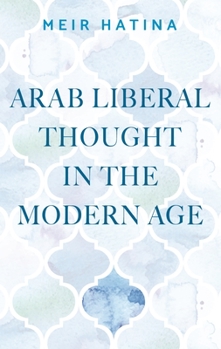Arab Liberal Thought in the Modern Age
Combining a historical perspective that traces lines of continuity and change in Arab liberalism, an integrative discussion of cross-sectional themes, and a comparative analysis of the West, Turkey and Iran, this book seeks to enrich our knowledge of liberal thought in the Arab Middle East. In intertwining these dimensions--the historic, integrative and comparative, Arab liberal thought in the modern age responds to a tendency to overlook the significance of Middle Eastern liberalism in favour of more powerful and assertive forces embodied by authoritarian regimes and Islamic movements.
The study focuses on the second half of the twentieth century and the early twenty-first century. Post-1967 liberals, as their predecessors, confronted old dilemmas, socio-economic upheavals, political instability and cultural disorientation, but also demonstrated ideological rejuvenation and provided liberal thought with new emphases and visions. Arab liberals' ongoing debates over freedom of religion, secularism, individualism, democracy and human rights were aimed at formulating of a comprehensive liberal project seeking to enact an Arab Enlightenment.Format:Hardcover
Language:English
ISBN:1526142910
ISBN13:9781526142917
Release Date:January 2020
Publisher:Manchester University Press
Length:272 Pages
Weight:1.25 lbs.
Dimensions:0.9" x 6.2" x 9.3"
Customer Reviews
0 rating





